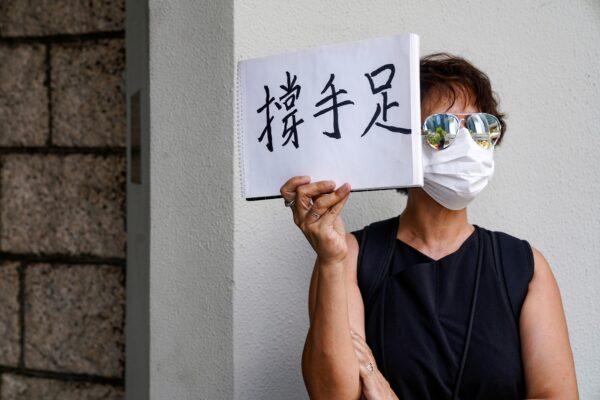HONG KONG—A Hong Kong court again denied bail on Tuesday to the first person charged with inciting separatism and terrorism under a new national security law in the Chinese-ruled city.
Tong Ying-kit, 23, had carried a sign reading “Liberate Hong Kong, revolution of our times,” and drove his motorbike into police officers, knocking several down on a narrow street before falling over and getting arrested, police have said. The government of the Asian financial hub has said the protest slogan connotes separatism or subversion under the new law, fuelling concern over freedom of expression in the former British colony.
Tong was among more than 300 demonstrators against the new law who were arrested by police on July 1, less than 24 hours after it was unveiled and took effect.
He was denied bail last month, with the case adjourned to Oct. 6 as prosecutors sought more time to collect evidence.
Tong then sought release from detention via a habeas corpus, which determines whether detention is lawful, but that application was rejected on Friday.
He again sought bail on Tuesday but his application was rejected by High Court Judge Alex Lee.

Hong Kong’s common law has traditionally allowed defendants to seek release unless prosecutors can show lawful grounds for their detention. The burden is now placed on the defendant, under the new law drafted by Beijing, where the judiciary is controlled by the Communist Party.
The national security law has drawn wide criticism in the West for jeopardizing basic rights and freedoms the special administrative region was promised when it returned to Chinese rule in 1997.
Supporters of the law, which has jail terms for up to life for anything China considers to be secession, subversion, terrorism, or collusion with foreign forces, say it would bring stability after a year of pro-democracy and anti-China unrest.





